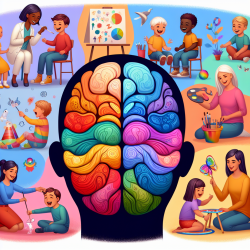As a speech-language pathologist committed to creating positive outcomes for children, it's essential to leverage data-driven tools that are both reliable and culturally relevant. The recent study, "Adaptation and validation of two autism-related measures of skills and quality of life in Ethiopia," provides invaluable insights into adapting assessment tools for diverse populations. This blog explores how you can implement these findings to enhance your practice and improve outcomes for children with autism and other neurodevelopmental disorders.
Key Findings from the Study
The study focused on adapting and validating two key tools: the Autism Treatment Evaluation Checklist (ATEC) and the Pediatric Quality of Life Inventory™ Family Impact Module (PedsQL™ FIM). Both tools were translated into Amharic and adapted for low-literate caregivers in Ethiopia. The findings indicate that these adapted tools are reliable and valid for assessing children with neurodevelopmental disorders and the impact on their caregivers.
Reliability and Validity
- ATEC: Demonstrated high internal consistency and test-retest reliability. Suitable for measuring developmental progress and the impact of interventions.
- PedsQL™ FIM: Showed good internal consistency and moderate to good test-retest reliability. Useful for assessing the impact of a child's condition on family functioning.
Practical Applications
Implementing these tools in your practice can offer several benefits:
- Comprehensive Assessment: Use the ATEC to monitor a child's developmental progress and the PedsQL™ FIM to understand the impact on caregivers.
- Cultural Sensitivity: Adapt these tools to fit the cultural context of the families you serve, ensuring more accurate and meaningful assessments.
- Data-Driven Interventions: Leverage the reliable data from these tools to design and evaluate interventions, leading to better outcomes for children and their families.
Encouraging Further Research
The study underscores the importance of adapting assessment tools to diverse cultural contexts. By doing so, we can ensure that all children, regardless of their background, receive the best possible care. I encourage practitioners to explore further research in this area to continue improving the tools and methods we use.
To read the original research paper, please follow this link: Adaptation and validation of two autism-related measures of skills and quality of life in Ethiopia.










